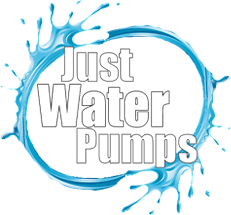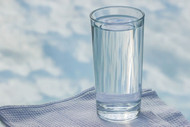Best Water Treatment Options for Domestic Water
12th Jul 2020
When trying to improve your water quality it can sometimes be difficult to understand which domestic water treatment system is required, the main aspect of selecting the right product is knowing what it is that needs removing or treating in the mains water supply in order to produce clean, pure water. This information can be found by carrying out a water analysis or in a lot of cases it can be quite obvious what is wrong with a water supply, such as high levels or sediment or poor taste.
For domestic water treatment there are two ways of treating the water, the first is point of use system i.e a single drinking water tap in the kitchen. These systems are usually designed to fit under the kitchen sink and will provide a single source of clean treated drinking water. Point of entry systems are designed to be fitted directly onto incoming mains water supplies and will treat the water for the whole property. Point of entry systems can be used individually or as combined systems to treat hard water, remove sediments such as scale, sand, lime, rust etc and deactivate harmful viruses and bacteria such as E.Coli. The benefits of this is that you are providing not only a source of treated water for drinking but also protecting heating systems, appliances, bathroom fittings, washing/laundry etc by making sure they use clean, pure water.
Water Filters
Water filters are designed to remove unwanted minerals and sediments such (rust, sand, silt etc.) Filters are categories based on their size, (the larger the size the higher the flow rates) and the Micron level of the filter. The Micron level is the size of the openings in the filter media, so a 25 Micron filter has larger openings than a 5 Micron filter and therefore will allow larger particles to pass through.
Water filters are offered as either single stage systems or 2/3 stage systems where different micron level filters or different types of filters such as Carbon and Softening filters can all be combined to create a higher level of water treatment.
Reverse Osmosis Systems
Reverse Osmosis systems in basic terms work by using different stages to remove as many water impurities as possible. The first 3 stages will remove sediments such (rust, sand, silt etc.), chlorine and chlorination by-products, as well as organic matter, the 4th stage is the RO membrane this will remove impurities such as bacteria and viruses. The 5th stage is the carbon filter which will improve the water taste and odour. 6 stage filters will have an additional stage for adding in good minerals for healthy drinking water. Domestic RO’s are a good way of reducing plastic waste as instead of buying bottled water a domestic RO can be used to fill reusable water bottles but with the same high quality drinking water.
RO systems come as un-pumped or with a pump this is because they require a minimum operating mains pressure. If your mains pressure is below 3 bar, you will probably need a pumped version.
Water Softeners
Hard water is water that contains high levels of calcium and magnesium minerals, the high levels of these minerals are what leads to the build-up of lime scale in home appliances, showers, surfaces, heating systems etc. Water Softeners work to reduce the amount of minerals in the water thereby softening the water, protecting and prolonging the life of home appliances, showers & heating systems. While other types of systems maybe be able to reduce the build up of scale having a softened water supply will have other benefits including;
– Usage and spend on detergents and shampoos is reduced by up to 50%
– Hair feels softer and clothes are softer and brighter
– Time is saved cleaning and no need to use harsh detergents
– Skin condition can improve noticeably. People with eczema have seen significant improvements with the use of soft water
The size of the softener required will depend of the level of water usage in the property and the hardness of the water.
UV Disinfection
UV Sterilisation is an economical, chemical-free and environmental way to safeguard drinking water against harmful bacteria such as E.coli, destroying up to 99% of micro-organisms which standard water supply treatment methods are not always guaranteed to protect against. Selecting a UV system comes down to the waste usage within a property, larger properties use more water and will require a higher spec unit with a higher flow rate.
Integrated UV disinfection systems combine UV water treatment with a prefilter to remove unwanted minerals and sediment before the UV treatment stage.



